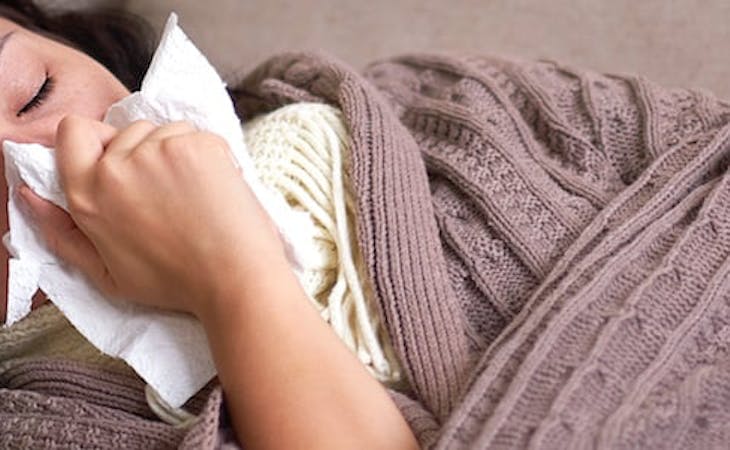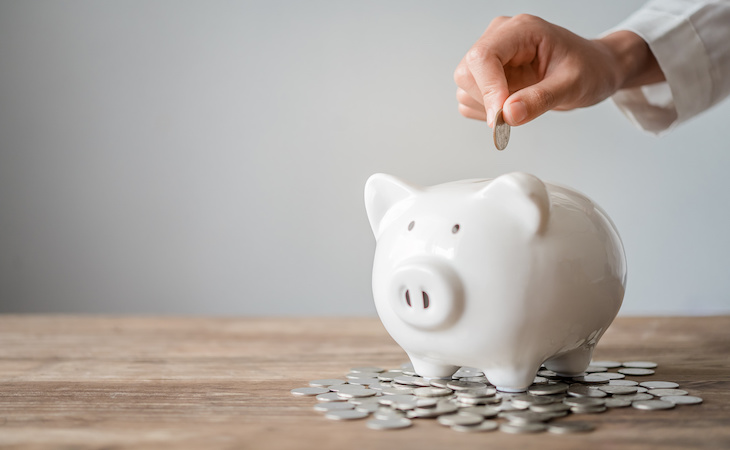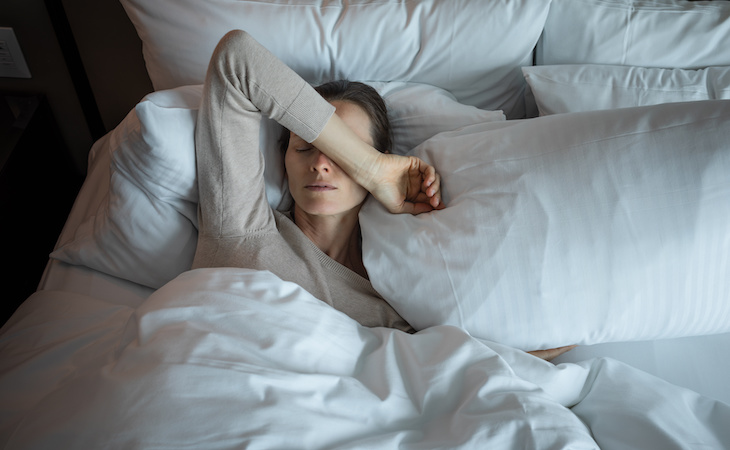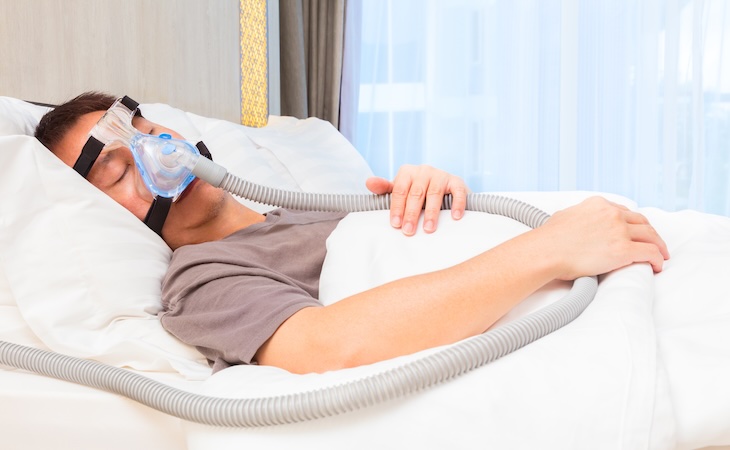In October, when my husband (who works at a university) tested positive for COVID-19 after a standard protocol screening, we were surprised. After all, neither of us felt sick. But in the days that followed, so did symptoms, for both us: a general flu-like feeling, fatigue, and—in time—a loss of smell and taste. I tested positive a few days later.
COVID-19, fatigue, and sleep deprivation
While I was grateful to have a mild case, the infection took the joy out of eating (with no ability to taste or smell, so much of the lure is lost), it made small tasks (like taking the trash out) difficult, and the fatigue made me want to do nothing but stay in bed and sleep.
But as anyone who’s ever been sick with any infection knows, being sick doesn’t always go hand-in-hand with solid rest—and that’s true with COVID-19 as well.
And that can be problematic. The effects of poor sleep and a lack of sleep are vast and serious, ranging from feeling sluggish to an increased risk for other serious health conditions.
“Prolonged sleep deprivation can lead to a greater risk of cardiovascular disease, type 2 diabetes, and depression, which is one of the many reasons why it’s so important to prioritize proper rest,” says Carlos M. Nunez, MD, board-certified anesthesiologist and chief medical officer at ResMed.
Nunez also notes poor sleep has been linked to a weakened immune system, which invites other viruses and severe illnesses to thrive in your body.
So how does COVID-19, in particular, impact sleep—and how can you make sure you’re getting the rest you need if you become infected? Here’s what you need to know.
How COVID-19 affects sleep
In short, the disease impacts sleep in many ways.
For one, a COVID-19 infection, much like any other viral infection, makes you feel fatigued and weak. “Weakness leads to low energy levels and thus, sleeping more than usual,” says Nikola Djordjevic, MD, a medical advisor at HealthCareers.
It’s a side effect I can personally relate to as multiple nights during my infection, I slept 12 hours at a time, feeling as though I couldn’t simply stay up past 8 p.m. or so.
That’s not necessarily a bad thing.
“Sleeping is actually an effective part of the body’s natural recovery process,” explains Djordjevic. “Various studies have shown that sleeping improves the functioning of the body’s immune system, speeding up recovery time.”
In fact, the American Sleep Association (ASA) notes that one of the best things you can do if infected with COVID-19 (or any virus for that matter) is to get lots of sleep.
Of course, that can be easier said than done. “Fatigue, cough, and congestion are prominent symptoms of COVID-19 and can interfere with your sleep,” Djordjevic says.
There’s also another element to coronavirus that can negatively impact how well you rest: the stress and anxiety that comes along with the pandemic—whether you’re infected and are worried about how sick you’ll get or whether or not you’ll infect someone else, or if you just have general anxiety about the pandemic.
Look no further than the term “coronasomnia,” which describes the difficulty sleeping many are having as it related to the pandemic, for proof. One National Institutes of Health report even found that rates of insomnia as well as acute levels of stress, anxiety, and depression, are on the rise.
“Besides physical weakness, COVID-19 can cause mental stress and anxiety that can make sleeping difficult or outright impossible,” notes Djordjevic. “The fear of getting serious symptoms and infecting other people is already stressful, not to mention actually being infected.”
As for longer-lasting impacts on sleep? It’s hard to say for sure what they could be.
“We won’t know what the long-term effects will be—if any—until enough time has passed to accurately study what those may be,” says Nunez. “If we define the long-term effects as those that are present one year or more after the acute infection has run its course, then we can expect to see the first meaningful cohorts of these patients being studied in the spring and summer of 2021.”
How to sleep better with COVID-19
While there are still many unknowns when it comes to the coronavirus, there are ways to take some things into your own hands to (hopefully) feel a bit better, reduce the spread, and get the rest you need.
Here are some small and simple changes to sleep better throughout the pandemic.
See a doc
First and foremost, if you have COVID-19—or think you do—it’s important to touch base with your doctor, notes Nunez. They can help you come up with sleep solutions that address your specific needs and help get your health back on track, he says.
They can also help you ensure that any sleep issues you might be having are indeed COVID-related (and not due to another issue such as sleep apnea), he says. (Learn about long COVID fatigue and how it can be treated.)
Make a “sick sleep” room
If you or someone in your home gets infected with COVID-19, you want to try to prevent the spread throughout the house as best you can.
One way to do this, according to the Centers for Disease Control and Prevention (CDC)? Setting up what’s called a “sick room”—a bedroom or area where the infected person stays (stocked with things like water, tissues, blankets, towels, hand sanitizer, and anything else they might need).
Having the person who’s infected stay in this space can reduce the spread of the disease as much as possible, the group notes.
Wash your bedding daily
Doing so in hot water and drying on high heat can help you sidestep virus transmission in your home, per the ASA. (Here’s our guide to cleaning every type of bedding.)
Relieve congestion
A cool-mist humidifier can help relieve nasal congestion and open the air passageways, explains Djordjevic. Taking a shower with hot water, meanwhile, can help relax your muscles and improve sleep.
Limit blue light exposure
Turn off your laptop, tablet, and phones before bed. The blue light emitted by these devices can interfere with melatonin, the sleep-regulating hormone, keeping you alert instead of allowing your body to naturally shut down for the night, says Djordjevic. Keep lights dim and the room quiet too, he suggests.
Have a dedicated workspace
If you work from home, don’t work from your bedroom to avoid associating any stress to it, says Djordjevic. Having set spaces in your home—for sleep, work, and play, for example—can help you identify different places with different activities.
Add relaxing activities to your bedtime routine
“Relaxing activities such as reading, listening to soothing music, or painting or coloring can help relieve stress and anxiety, thus promoting better sleep, says Djordjevic. “Meditation, even for a few minutes per day, is one of the best ways of calming down and keeping anxiety at bay.”
For more advice on sleeping while sick, here are our best tips for sleeping with a stuffy nose and dealing with a nighttime cough.




